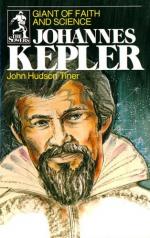|
This section contains 5,673 words (approx. 19 pages at 300 words per page) |

|
SOURCE: "Kepler as a Reader," in Journal of the History of Ideas, Vol. 53, No. 4, October-December, 1992, pp. 561-72.
In the following essay, Grafton discusses how Kepler, like other scientists of his day, referred heavily upon older texts to give authority to his work, and how his reading of the mistakes of others influenced him to include much self-criticism in his own writings so that future readers would be better able to identify its weaknesses, and thus be more readily able to build upon his work.
Kepler, like Galileo, often rebelled against the cultural authority of old books. In 1599 his teacher of astronomy, Michael Maestlin, asked him to collaborate in preparing an encyclopedic commentary on Homer. Maestlin wanted him to interpret the encounters of the gods in the Iliad and Odyssey as conjunctions of the planets named after them and to compute their exact dates. Kepler clearly rejected the notion...
|
This section contains 5,673 words (approx. 19 pages at 300 words per page) |

|


